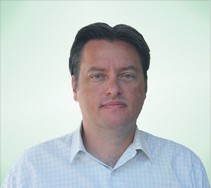Dr. Georgios Paschos (Huawei, France) - iCore & CommNet2 Workshop Speaker
 Since Nov 2014, Georgios Paschos is a principal researcher at Huawei Technologies, Paris, France, leading the Network
Control and Resource Allocation team. Previously, he spent two years at MIT in the team of Prof. Eytan Modiano. For the period June
2008-Nov 2014 he was affiliated with "The Center of Research and Technology Hellas - Informatics & Telematics Institute" CERTH- ITI,
Greece, working with Prof. Leandros Tassiulas. He also taught in the University of Thessaly, Dept. of Electrical and Computer
Engineering as an adjunct lecturer for the period 2009-2011. In 2007-2008 he was an ERCIM Postdoc Fellow in VTT, Finland, working
in the team of Prof. Norros. He received his diploma in Electrical and Computer Engineering (2002) from Aristotle University of
Thessaloniki, and his PhD degree in Wireless Networks (2006) from ECE dept. University of Patras (supervisor Prof. Stavros Kotsopoulos),
both in Greece. Two of his papers won the best paper award, in GLOBECOM 07' and IFIP Wireless Days 09' respectively. He serves as
an associate editor for IEEE/ACM Trans. on Networking, and as a TPC member of INFOCOM, WiOPT, and Netsoft.
Since Nov 2014, Georgios Paschos is a principal researcher at Huawei Technologies, Paris, France, leading the Network
Control and Resource Allocation team. Previously, he spent two years at MIT in the team of Prof. Eytan Modiano. For the period June
2008-Nov 2014 he was affiliated with "The Center of Research and Technology Hellas - Informatics & Telematics Institute" CERTH- ITI,
Greece, working with Prof. Leandros Tassiulas. He also taught in the University of Thessaly, Dept. of Electrical and Computer
Engineering as an adjunct lecturer for the period 2009-2011. In 2007-2008 he was an ERCIM Postdoc Fellow in VTT, Finland, working
in the team of Prof. Norros. He received his diploma in Electrical and Computer Engineering (2002) from Aristotle University of
Thessaloniki, and his PhD degree in Wireless Networks (2006) from ECE dept. University of Patras (supervisor Prof. Stavros Kotsopoulos),
both in Greece. Two of his papers won the best paper award, in GLOBECOM 07' and IFIP Wireless Days 09' respectively. He serves as
an associate editor for IEEE/ACM Trans. on Networking, and as a TPC member of INFOCOM, WiOPT, and Netsoft.
Talk Title: "Placing Dynamic Content in Caches with Small Population"
Abstract: This talk addresses a fundamental limitation for the adoption of caching for wireless access networks due to small population sizes. This shortcoming is due to two main challenges: (i) making timely estimates of varying content popularity and (ii) inferring popular content from small samples. We propose a framework which alleviates such limitations. To timely estimate varying popularity in a context of a single cache we propose an Age-Based Threshold (ABT) policy which caches all contents requested more times than a threshold related to content age. We show that ABT is asymptotically hit rate optimal in the many contents regime, which allows us to obtain the first characterization of the optimal performance of a caching system in a dynamic context. We then address small sample sizes focusing on L local caches and one global cache. On the one hand we show that the global cache learns L times faster by aggregating all requests from local caches, which improves hit rates. On the other hand, aggregation washes out local characteristics of correlated traffic which penalizes hit rate. This motivates coordination mechanisms which combine global learning of popularity scores in clusters and LRU with prefetching.